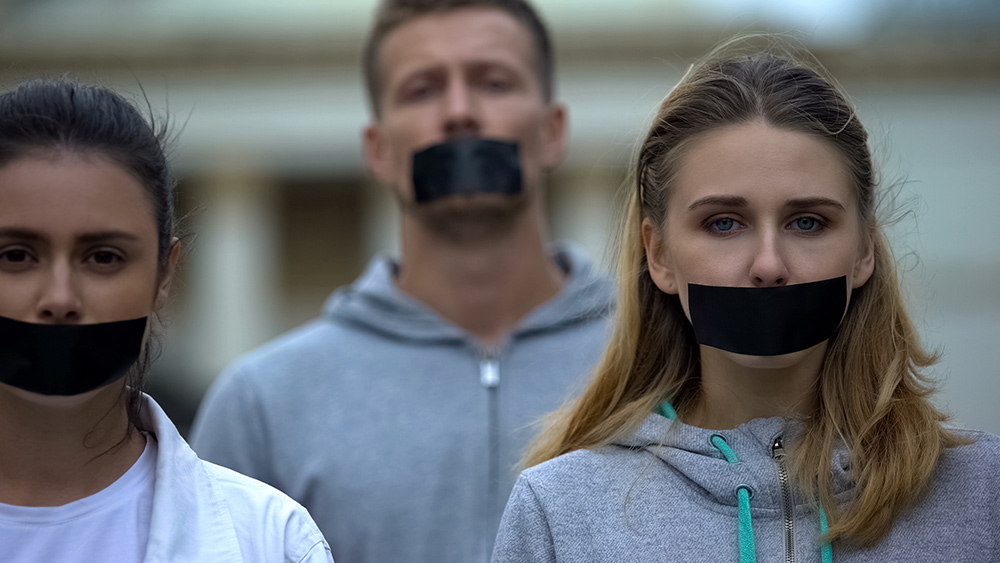EXECUTION SQUADS: Update to DoD directive expands military authority to use lethal force against American citizens
10/15/2024 / By Cassie B.

With the election only a few weeks away, the Department of Defense (DoD) has given the U.S. military authority to assist in domestic law enforcement, including giving them the right to use lethal force against American citizens under certain circumstances. It’s a development that has largely gone under the radar despite its very significant implications.
DoD Directive 5240.01 is not new, but it did just get an update last month that is rather convenient for those in charge – and deeply upsetting to those who value their constitutional rights. It expands the list of circumstances in which the DoD is allowed to use deadly force while helping civilian law enforcement, potentially paving the way for using such force under a very vague definition of “national security” conditions.
Although directives issued by the DoD tend to pertain to internal policy, in this case, the ramifications could affect every American and potentially even infringe on their constitutional rights under certain circumstances.
This new iteration replaces the 2016 version of the directive, which was largely concerned with collecting intelligence and protecting civil liberties. In the updated version, lethal force can be used where there are imminent threats as long as it follows proper legal frameworks and gains approval from the Secretary of Defense.
Perhaps one of the most worrying aspects of the update is its proximity to the election. With Americans headed to the polls in just six weeks, concerns about election integrity are ramping up, and history has shown us that these concerns are more than justified.
Many wonder if the adjustments to the directive were made with potential civil unrest surrounding any voter manipulation in mind and whether it could result in military intervention should something happen with the election that upsets the masses.
Those who question pandemic origins and vaccine efficacy are now considered domestic terrorists
There is also the fact that the Department of Homeland Security has recently broadened its definition of domestic terrorism, with the list of potential threats now including individuals who question election integrity as well as vaccine efficacy and the origins of the pandemic.
In other words, natural health advocates who question the safety of COVID-19 vaccines or future interventions created for other health emergencies could find themselves subjected to potentially lethal force interventions on the pretense of protecting national security due to their classification as potential domestic extremists.
There are a lot of ways this could impact American civil liberties. Will the new definition of national security threats cause some people to be targeted because of their political beliefs? Could the higher degree of military involvement in collecting domestic intelligence violate Americans’ privacy? Might the expanded authorities granted by the new directive affect our right to carry out legitimate protests? What impact could it have on civilian oversight of the military?
There are a lot of questions about the huge legal shift seen in this directive and what it may mean for Americans. Unfortunately, we probably won’t get answers to them because this directive update has not been covered by the mainstream media and the public is mostly unaware that Americans are slowly losing some of their individual rights in favor of “national security”.
Sources for this article include:
Submit a correction >>
Tagged Under:
big government, Censorship, civil liberties, Crybullies, dod, domestic terrorism, lethal force, Liberty, military, national security, privacy watch, protests, Suppressed, Tyranny, unconstitutional
This article may contain statements that reflect the opinion of the author
RECENT NEWS & ARTICLES
COPYRIGHT © 2018 ORWELLIAN.NEWS
All content posted on this site is protected under Free Speech. Orwellian.news is not responsible for content written by contributing authors. The information on this site is provided for educational and entertainment purposes only. It is not intended as a substitute for professional advice of any kind. Orwellian.news assumes no responsibility for the use or misuse of this material. All trademarks, registered trademarks and service marks mentioned on this site are the property of their respective owners.



















